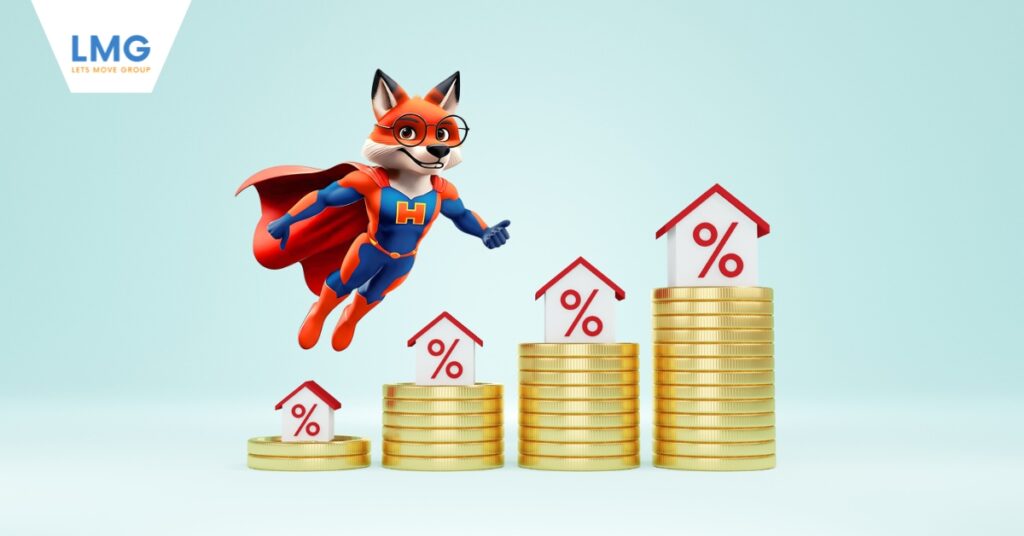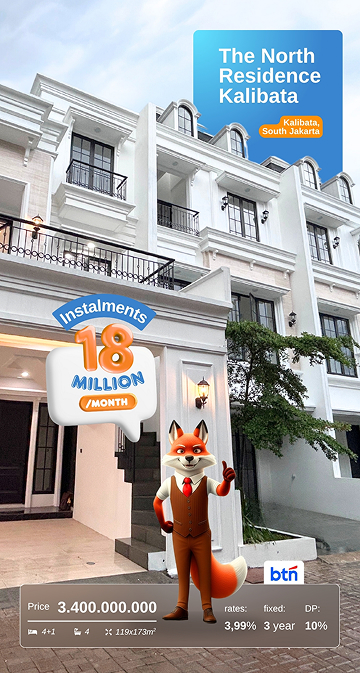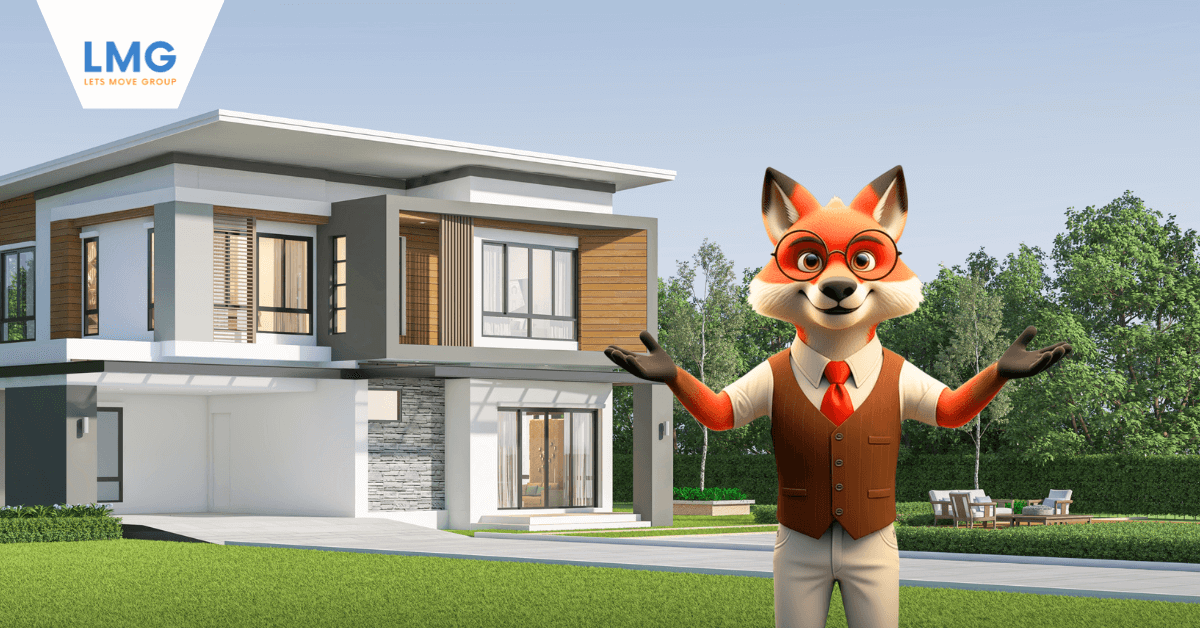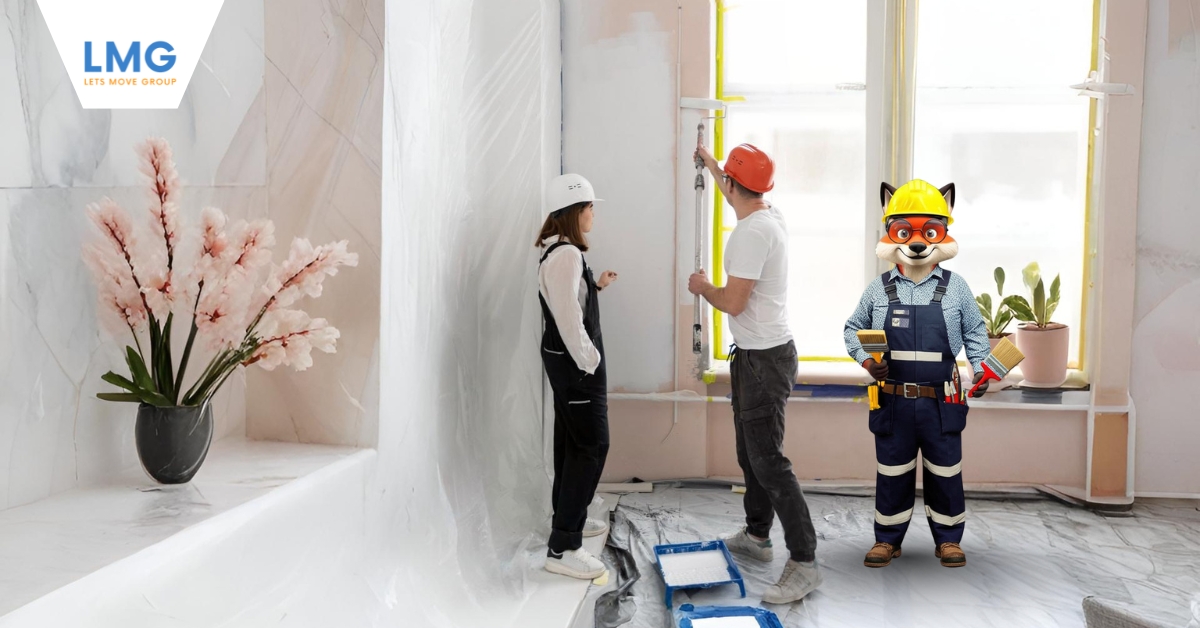One of the important sectors for the national economy is the residential property industry in Indonesia. Every three months, Bank Indonesia (BI) routinely releases the results of the Residential Property Price Survey (SHPR) which is an important reference for industry players, the government, and the wider community. In the first quarter of 2025, the results of this survey showed interesting developments to watch, starting from changes in prices, sales, to financing of residential property.
BI Survey – Throughout Q1 2025, Residential Property Prices Increase by 1.07 Percent
According to the results of the BI survey, it indicates that residential property prices in the primary market in the first quarter of 2025 experienced a fairly limited increase, namely 1.07% annually (year-on-year/yoy). This figure is lower than the growth in the fourth quarter of 2024 which reached 1.39%. Although price growth has slowed, this data remains an important picture of the current condition of the property market.
What is the Residential Property Price Index (IHPR)?
IHPR is an indicator used to measure and monitor the development of residential house prices in Indonesia periodically. Bank Indonesia compiles this index based on data collected from property developers in various cities in Indonesia.
This index not only shows changes in home selling prices in the primary market, but also provides information on the number of housing units built and sold and the factors that influence these price movements.
Price Development Based on House Type
The decreasing in residential property price growth was recorded in house types, both small, medium, and large. The following is a breakdown of price growth by house type in Q1 2025 compared to the previous period:
Residential Property Price Growth Comparison Table
| House Type | Quarter I 2024 | Quarter IV 2024 | Quarter I 2025 |
| Small | 2,41% | 1,84% | 1,39% |
| Medium | 1,60% | 1,31% | 1,14% |
| Big | 1,53% | 1,46% | 0,97% |
According to data from id.tradingeconomics.com, spatially, out of 18 cities surveyed, 12 cities experienced a decline in IHPR, with the most significant decline occurring in Samarinda, Denpasar, Padang, and Batam.
Factors Affecting the Indonesian Property Market
Some of the main factors influencing the decline in residential property price growth in early 2025 include:
- Declining Purchasing Power: Economic pressures and increased layoffs have led to a decline in people's purchasing power.
- Increase in Sales of Small Houses: Although prices of small houses slowed down, sales actually increased significantly by 21.75% (yoy) after contracting by 23.70% (yoy) in the previous quarter.
- Decline in Sales of Mid- and Large-Scale Homes: Sales in this segment actually experienced a decline, so price growth in this segment also slowed down.
How is the Development of Residential Property Sales in Indonesia?
Overall, residential property unit sales in the primary market in Q1 2025 were recorded to have grown by 0.73% (yoy), a significant increase compared to the previous quarter which contracted by 15.09% (yoy). This increase in sales was driven mainly by small-type houses, while medium and large-type houses still experienced sales pressure.
Internal Funds as a Source
According to a BI survey, the main source of funding for residential property development still comes from developers' internal funds, reaching 77.28%. This shows that developers still rely heavily on their own capital.
Meanwhile, from the consumer side, the majority of home purchases in the primary market are made through the Home Ownership Credit (KPR) financing scheme, with a share of 70.68% of total financing. The KPR scheme is still the mainstay of the community in buying a home, along with various conveniences and offers from banks.
Impact and Implications for the Property Industry
The decline in residential property price growth in Q1 2025 has several important implications:
Declining prices and the dominance of internal funds as a source of financing require developers to be more selective in choosing projects and marketing strategies, especially for the medium and large housing segments.
Limited price increases provide an opportunity for consumers, especially in the small home segment, to obtain housing at relatively stable and affordable prices.
The dominance of mortgages as the main financing scheme indicates the potential for growth in the housing credit sector, but banks need to pay attention to credit risk amid the economic downturn.
Future Prospects and Challenges
Going forward, the residential property industry still faces challenges, especially related to people's purchasing power and global economic uncertainty. However, sales growth in the small house segment shows that demand for affordable housing remains strong.
The government and industry players need to work together to maintain growth momentum, including through:
- Increasing access to financing for low-income communities.
- Property product innovation that suits your needs.
- Incentive policies to encourage developers to build more affordable housing.
The SHPR survey results in Q1 2025 indicate slowing price growth, with IHPR growing by 1.07%. Although overall property sales increased slightly by 0.73%, developers and everyone in the industry need to adapt to maintain growth in this sector.
Frequently asked questions (FAQ)
1. How much do property prices increase per year?
In general, the average annual increase in house prices is between 10–15%.
2. What is the property inflation in Indonesia?
Residential property inflation in Indonesia grew 1.07% annually in the first quarter of 2025.
3. What are examples of residential property?
Residential property is property that is used as a residence or dwelling and has electricity, water and sanitation facilities.
4. Which real estate investment is the best in Indonesia?
Big cities like Jakarta, Surabaya, and Bandung are still the targets, but buffer areas like Bogor, Tangerang, and Bekasi also offer big opportunities with more competitive prices.
5. What makes a house more expensive?
Urbanization and population growth have increased the need for housing, so that the demand for houses has increased significantly.
Masih bingung cara pengajuan KPR? Baca selengkapnya
“Understanding Indonesian Mortgage, Requirements, and How to Apply for KPR“
Apply for a mortgage now with
As an experienced and trusted property consultant in Indonesia, Lets Move Group is the right choice to assist expatriates in purchasing property and applying for mortgages that suit their needs. Our team provides customized guidance at every step of the mortgage application process. What are you waiting for! Contact our consultants now!!














